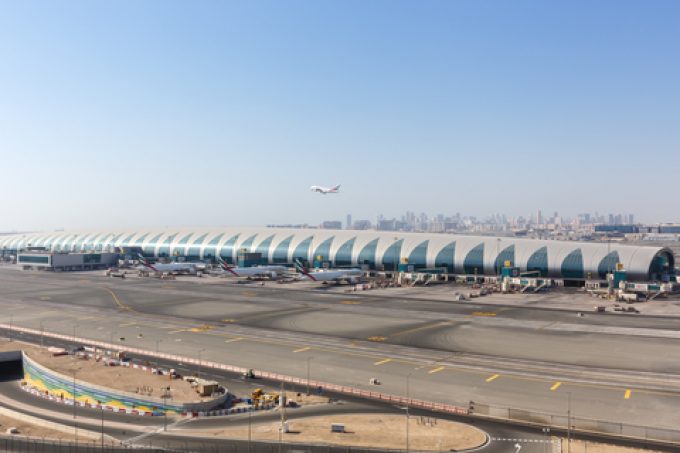Threat of rising oil price adds to frustration for crisis-hit supply chain chiefs
New warnings from the World Bank of surging oil prices, adding to the continuing instability ...

Cargo stakeholders – trying to deal with the Red Sea crisis-linked supply chain challenges – now face disruption on alternative supply chain modes.
Air cargo movement into Dubai – a major global trade hub – has been affected by a surge in volumes, forcing cargo terminal operator dnata to suspend inbound flows for 48 hours.
The temporary embargo, imposed to clear up cargo buildups, is due to begin tonight.
“In recent months, we’ve experienced a significant surge in cargo volumes at our Dubai facilities, particularly in import of general cargo such as fast-moving consumer goods, electronics and fashion accessories,” dnata said, adding that volumes in January had soared 45%, year on year.
“To expedite the recovery process, we are implementing a temporary embargo on import loads of cargo at both Dubai and Dubai World Central airports,” the Dubai airport authority noted. dnata provides cargo services at both airports.
According to available data, dnata handles some 7,400 tonnes of cargo daily out of the two facilities by bellyhold and freighter capacity, with combined annual volumes pegged at some 2.4m tonnes.
But Emirates has an exclusive terminal in Dubai, which has not reported any cargo disruption.
“Our operations remain unaffected by the embargo,” Robert Fordree, senior VP at Emirates SkyCargo, told customers. “We continue to handle our cargo shipments seamlessly.”
But Indian airline sources blame the cargo halt at Dubai on system issues and have shrugged off concerns over the two-day embargo announcement.
“This is a temporary issue,” an Air India official told The Loadstar. “It is business as usual for us.”
And freight forwarder sources have attributed the logjam to the Red Sea-driven shift from ocean networks, a significant portion of rerouted traffic meant for transhipment connections at Dubai.
“Even if a few containers move from ocean to air, there will be an impact on the supply chain ecosystem,” a Mumbai-based forward noted.
Indeed, Vineet Malhotra, co-founder and director of Kale Logistics Solutions, said the cargo flow pressure created by ocean service reliability and capacity issues threatened to cramp air cargo networks.
He told The Loadstar: “The temporary embargo in Dubai underscores the immense strain on air cargo operations. Positioned as a vital link between Asia, Europe, and Africa, Dubai faces the ripple effects of disruptions in the Red Sea, amplifying not just local air cargo challenges but also reverberating across global supply chains reliant on Dubai.
“A staggering 62% surge in air cargo volumes from Vietnam to Europe, surpassing the peak witnessed in 2023, further accentuates the urgency of the situation,” he added.
India ships perishables in large volumes to Dubai, mostly by domestic airlines like Air India and IndiGo, and the inbound suspension is a major blow for its exporters.
According to airfreight forwarders, average airline cargo rates out of India have seen a 30% to 40% increase in the past couple of weeks. They put average air cargo booking rates at $3 per kg to the US and $2.7 per kg to the EU, up from $2/kg and $1.80/kg, respectively, a few weeks ago.
And the pricing picture is no different on the import leg.
“Air freight is busy and Indian inbound rates [are] going wild,” said a forwarder, who also described the air cargo flow situation in Sri Lanka and Bangladesh as “mayhem”.
“Demand is massively high on airfreight, with limited capacity…. The carriers don’t seem to be repositioning many freighters on the busy routes, which results in the price hikes.”
You can contact the writer at [email protected].
Comment on this article